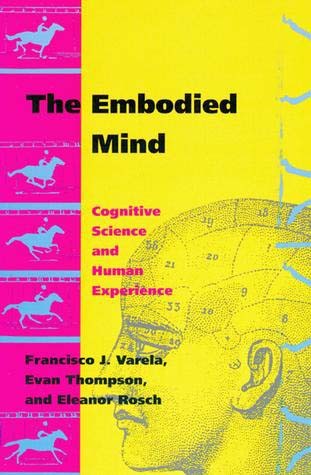Shelley Rice (ed.): Inverted Odysseys: Claude Cahun, Maya Deren, Cindy Sherman (1999)
Filed under book | Tags: · art, art history, film, literature, self

Claude Cahun, Maya Deren, and Cindy Sherman were born in different countries, in different generations—Cahun in France in 1894, Deren in Russia in 1917, and Sherman in the United States in 1954. Yet they share a deeply theatrical obsession that shatters any notion of a unified self. All three try out identities from different social classes and geographic environments, extend their temporal range into the past and future, and transform themselves into heroes and villains, mythological creatures, and sex goddesses. The premise of Inverted Odysseys is that this expanded concept of the self—this playful urge to “try on” other roles-is more than a feminist or psychological issue. It is central to our global culture, to our definition of human identity in a world where the individual exists in a multicultural and multitemporal environment. This book is an “odyssey” through historical, theoretical, critical, and literary perspectives on the three artists viewed in the context of these issues. Contributors include Lynn Gumpert, Lucy Lippard, Jonas Mekas, Ted Mooney, Shelley Rice, and Abigail Solomon-Godeau.
Central to the book is Claude Cahun’s “Heroines” manuscript, a series of fifteen stream-of-consciousness monologues written in the voices of major women of literature and history, such as the Virgin Mary, Sappho, Cinderella, Penelope, Delilah, and Helen of Troy. Translated by Norman MacAfee, these perverse and hilarious vignettes make their English-language debut here. This is also the first time that Cahun’s text has appeared in its entirety.
The book accompanies an exhibit cocurated by Lynn Gumpert and Shelley Rice at the Grey Art Gallery, New York University.
Publisher MIT Press, in cooperation with the Grey Art Gallery, New York University, 1999
ISBN 0262681064, 9780262681063
168 pages
Francisco Varela, Evan T. Thompson, Eleanor Rosch: The Embodied Mind: Cognitive Science and Human Experience (1991)
Filed under book | Tags: · body, cognition, cognitive science, connectionism, mind, neuroscience, perception, phenomenology, philosophy, psychoanalysis, self

“Although the scientific study of the mind has developed rapidly in recent years, it has devoted little attention to human cognition understood as everyday lived experience. The Embodied Mind corrects this imbalance within cognitive science by providing a deep and sophisticated treatment of the spontaneous and reflective dimensions of human experience. Varela, Thompson, and Rosch argue that it is only by having a sense of common ground, between mind in science and mind in experience that our understanding of cognition can be more complete. To create this common ground they develop a dialogue between cognitive science and Buddhist meditative psychology and situate this dialogue in relation to other traditions, such as phenomenology and psychoanalysis.
The dialogue proceeds in five parts. The first introduces the two partners and explains how the dialogue will develop. The second presents the computational model of mind that gave rise to cognitive science in its classical form. The authors show how this model implies that the self is fundamentally fragmented and introduce the complementary Buddhist concept of a nonunified, decentralized self. The third shows how cognitive science and Buddhist psychology provide the resources for understanding how the phenomena usually attributed to a self could arise without an actual self. The fourth presents the authors’ own view of cognition as embodied action and discusses the relevance of this view for cognitive science and evolutionary theory. The fifth considers the philosophical and experiential implications of the view that cognition has no foundation or ground beyond its history of embodiment and explores these implications in relation to contemporary Western critiques of objectivism and the nonfoundationalist tradition of Buddhist philosophy.”
Publisher MIT Press, 1991
ISBN 0262720213, 9780262720212
328 pages
PDF (updated on 2020-4-17)
Comments (3)Julie E. Cohen: Configuring the Networked Self: Law, Code, and the Play of Everyday Practice (2012)
Filed under book | Tags: · code, copyright, everyday, internet, law, life, networks, piracy, play, privacy, security, self, surveillance

The legal and technical rules governing flows of information are out of balance, argues Julie E. Cohen in this original analysis of information law and policy. Flows of cultural and technical information are overly restricted, while flows of personal information often are not restricted at all. The author investigates the institutional forces shaping the emerging information society and the contradictions between those forces and the ways that people use information and information technologies in their everyday lives. She then proposes legal principles to ensure that people have ample room for cultural and material participation as well as greater control over the boundary conditions that govern flows of information to, from, and about them.
Publisher Yale University Press, 2012
ISBN 0300125437, 9780300125436
Printable version is under a Creative Commons Attribution NonCommercial ShareAlike license
352 pages
the author discussing her book (video)
Comment (0)
